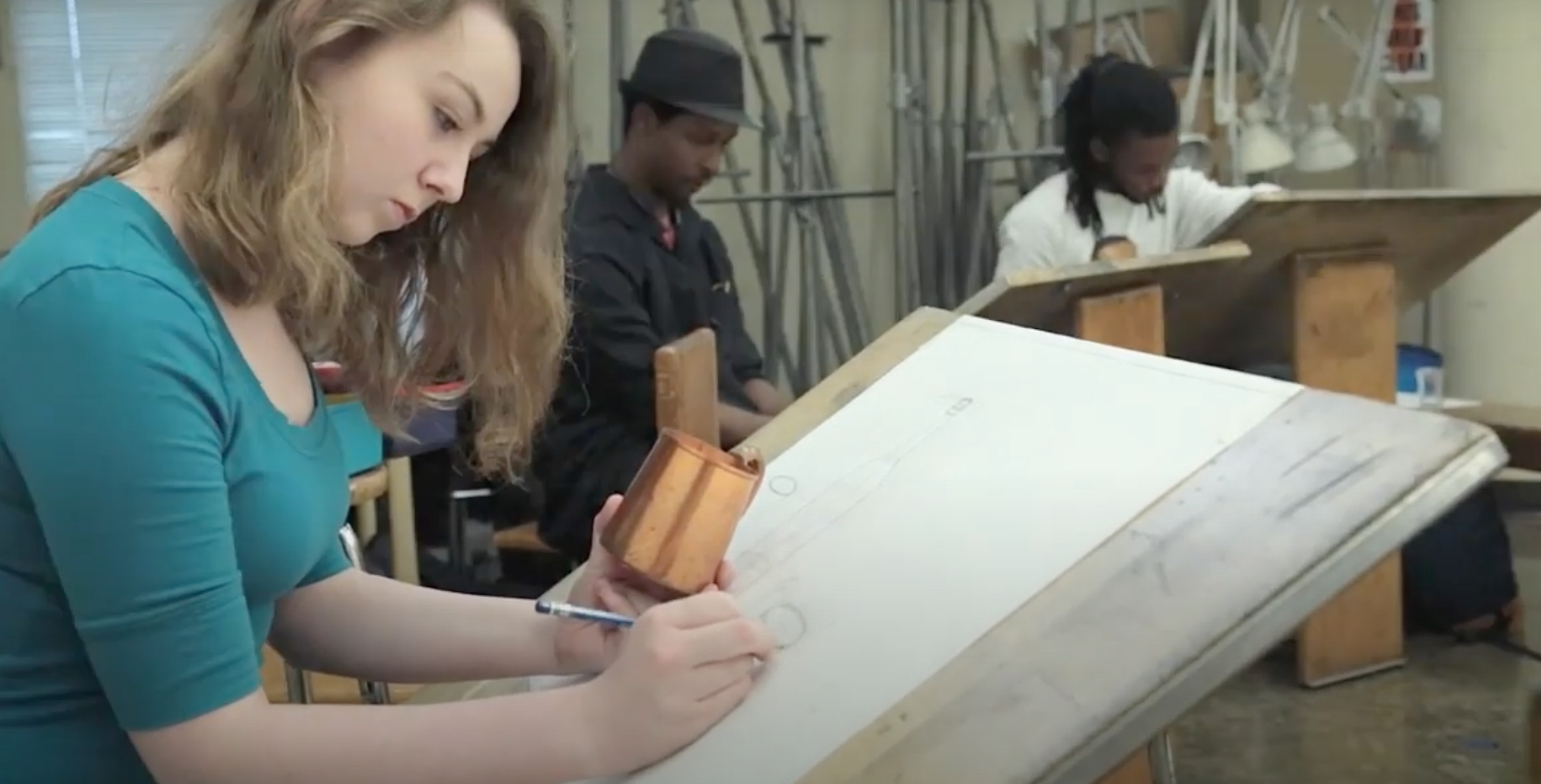Moving Online with Hands-on Learning at HFC
Gallery

As the world copes with the COVID-19 pandemic, colleges and universities around the country have adjusted their curriculum to fit the social distancing guidelines recommended by the Centers for Disease Control. Students everywhere have transitioned to online education, taking them out of the classroom to try to finish the semester. Schedules faded, connections lost, and the relatively hands-on environment that everyone’s used to vanished before our eyes.
For the average student, this change has been undoubtedly inconvenient, to say the least, but those enrolled in Fine Arts or Automotive courses have faced additional challenges. HFC employs Moodle (“HFC Online”) as its learning management software, and while it offers various chatting and video utilities, nothing can replace the physical learning a classroom provides. For many classes, the resources needed to continue the semester “as normal” would be too expensive to buy and/or find within a household. Piano students, for example, cannot be expected to own a piano, nor automotive students expected to have stray car engines at their homes.
Some courses, including Color Theory and 2D Design, have faced alterations based on what students already have at home. Art students might be expected to have paint brushes and a drawing pad, but may not have access to quality paints. Instructors must continue accordingly. Going further, even if students have the necessary resources, they might lack the motivation, which is a growing concern within the Fine Arts department.
Prof. Steven Glazer, who teaches an assortment of art classes at HFC, says that student participation, and, in turn, morale, have seriously diminished in their time online. In his Color Theory course, only one of 13 students had finished their latest assignment by the due date. “Art students are so reliant on either being able to physically stand behind you or have you walk around and say ‘you’re doing this wrong, here’s what you have to do to correct it,” he said. Without this personal instruction, expectations are lowered, and experiences that would have otherwise resumed have been abruptly discontinued. “We are making due, but it’s questionable whether this is in the best interest of the students,” Glazer said.
In the music department, serious changes are being made to ensure that students can finish the semester. All choirs, vocal groups, and bands, have cancelled their performances, leaving instructors with little teaching left. Prof. Kevin Dewey, HFC’s only full-time music instructor said, “It’s not as much quantity of delivery, but there’s definitely been quality of performance and enough quantity that we can say, ‘okay, we actually completed the semester.’” Dewey’s music students will have one final assignment to complete before the end of the semester.
Unfortunately, some classes were not given the opportunity to continue. Among these include ceramics, instrument-based courses, including piano and studio engineering, even the spring musical, “Mamma Mia!” had to be postponed until further notice, creating challenges for the classes that were associated with the production.
Collaboration has been a key factor in the transition to remote learning. When making executive decisions regarding the Fine Arts department, Dewey and Glazer openly communicated with fellow staff members on how to proceed.
This extends beyond HFC, as instructors across the country collaborate via Facebook and other social media sites to discuss the best way to continue logistically and thematically. “There has been a sense of community in that we’re all in this position, even though we teach different materials, we’re all facing some of the same issues,” said Margaret Hull, assistant professor of Fashion Design and Merchandising at Wayne State University.
HFC’s automotive programs have been equally affected. As with the Arts, different courses require different materials. Introductory engineering classes have relocated to Moodle, but many advanced courses have been postponed. In Ford Motor Company’s ASSET Program, which operates out of HFC, the struggles are evident. Kristopher Young, faculty chair for Automotive Programs and ASSET Instructor, says “the difficulties are many.” Young explains, “Typically we lecture about a certain sub-system of a vehicle, and then have hands-on work stations either on vehicles or on parts at a bench.” Due to the sudden inability to continue hands-on education, the majority of these classes have been postponed until social distancing guidelines are lifted.
The focus for the college remains on engaging students, now remotely, and giving them a pathway to successfully complete the semester. The classes that have been postponed will resume when it’s safe, though instructors are unsure of when that will be. “I don’t expect the school to be fully operational throughout the summer,” Glazer said, “things aren’t going to change and be safe that quick.” Nobody knows when in-person classes will return, but for every semester that goes by, certain students will be left behind.
